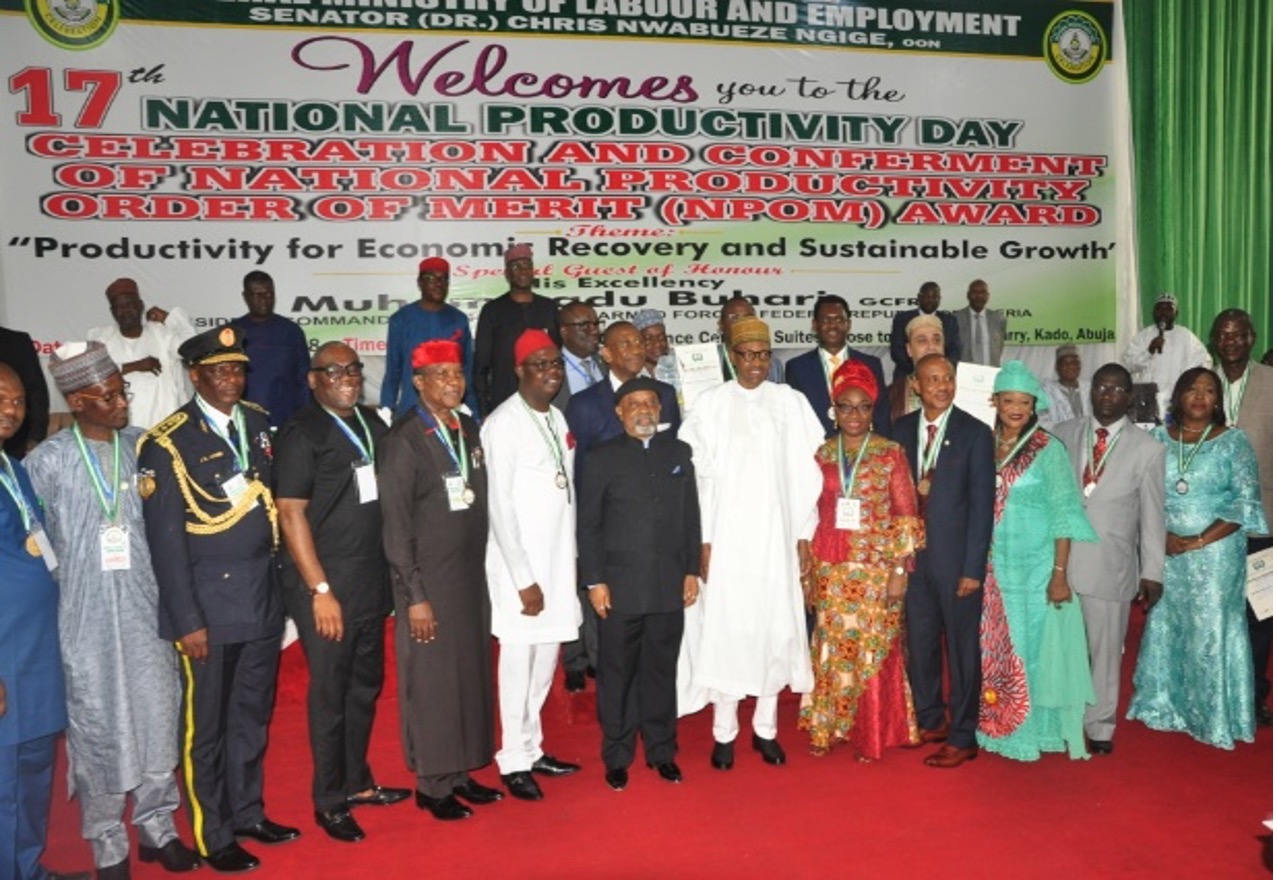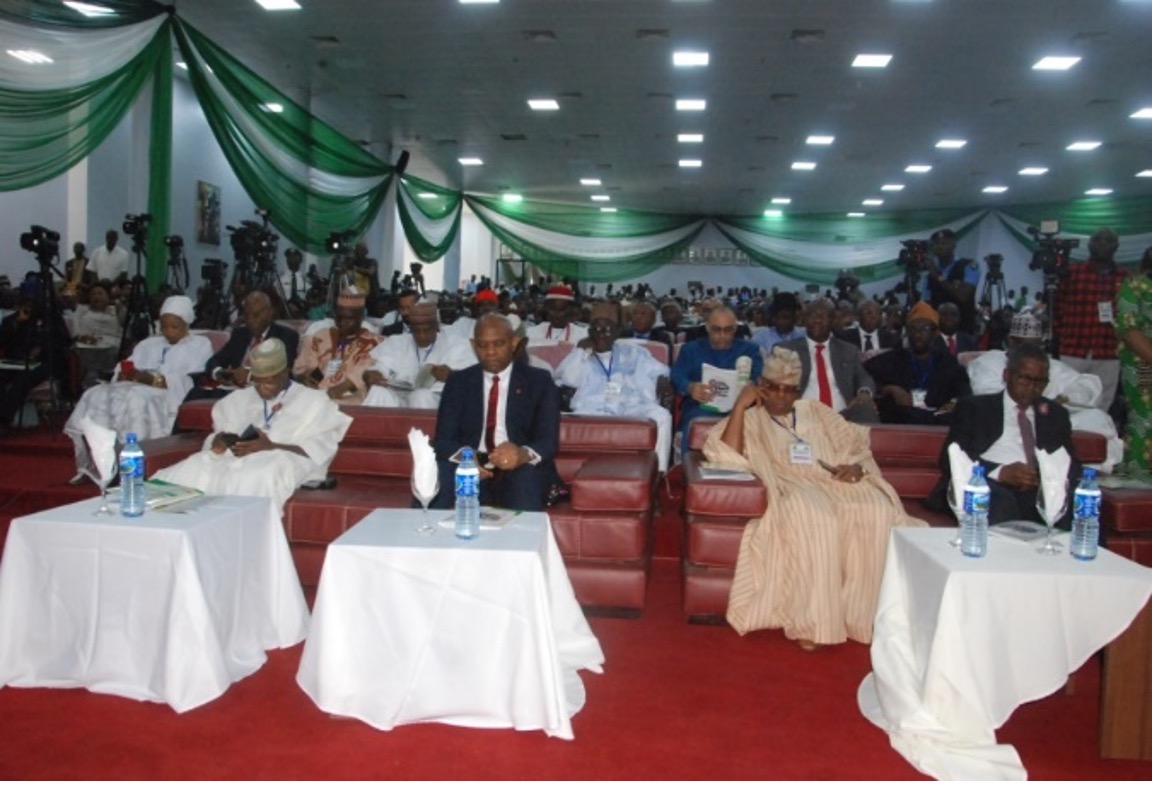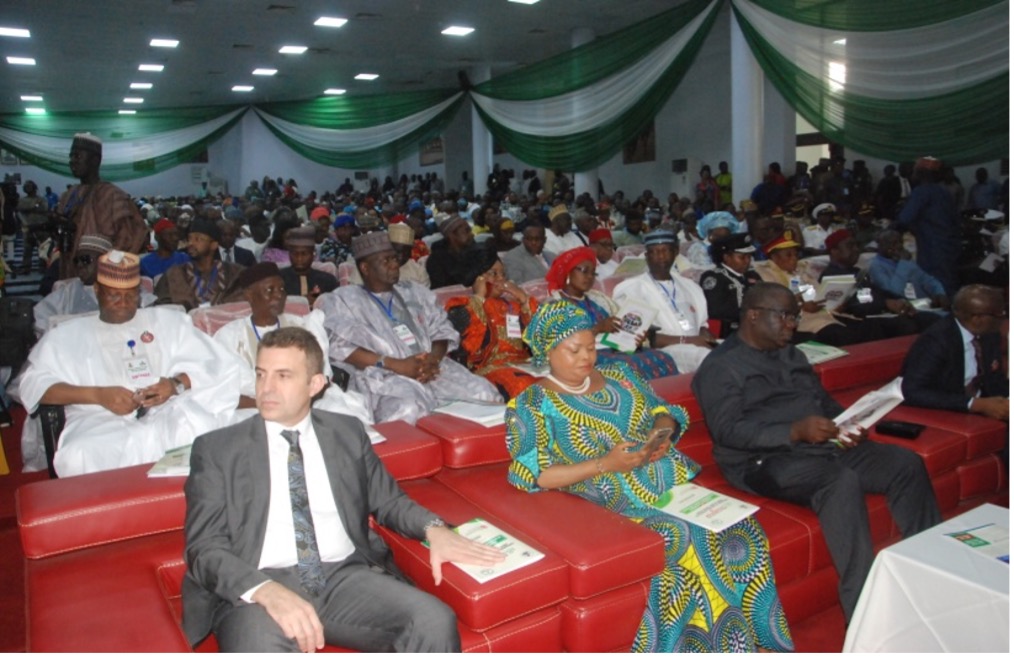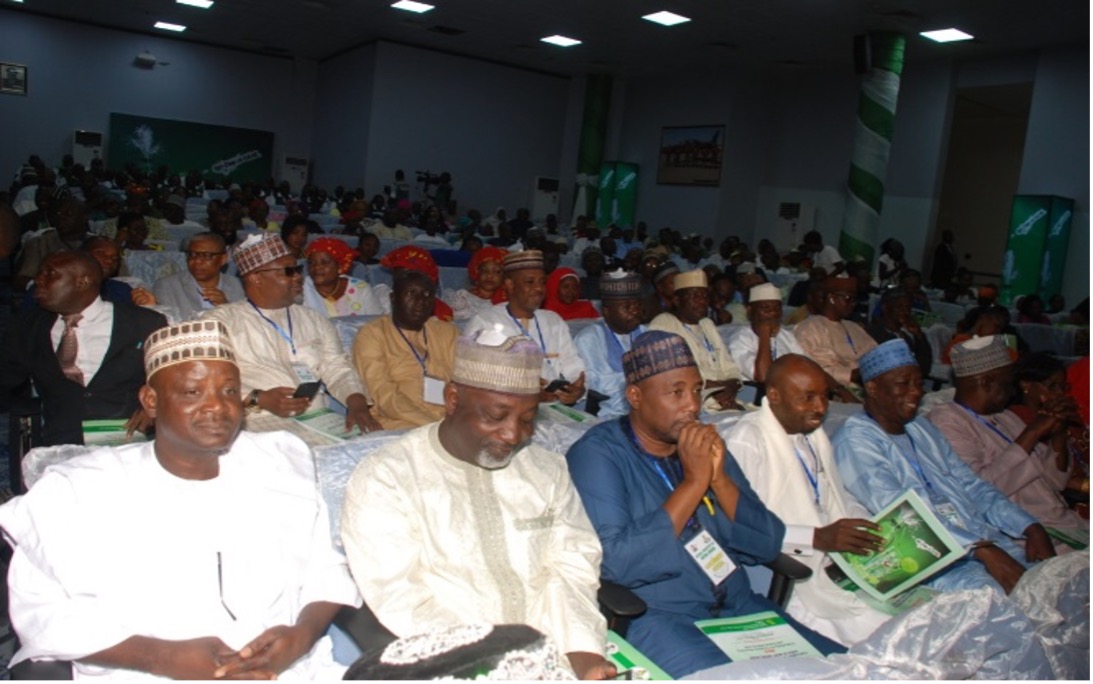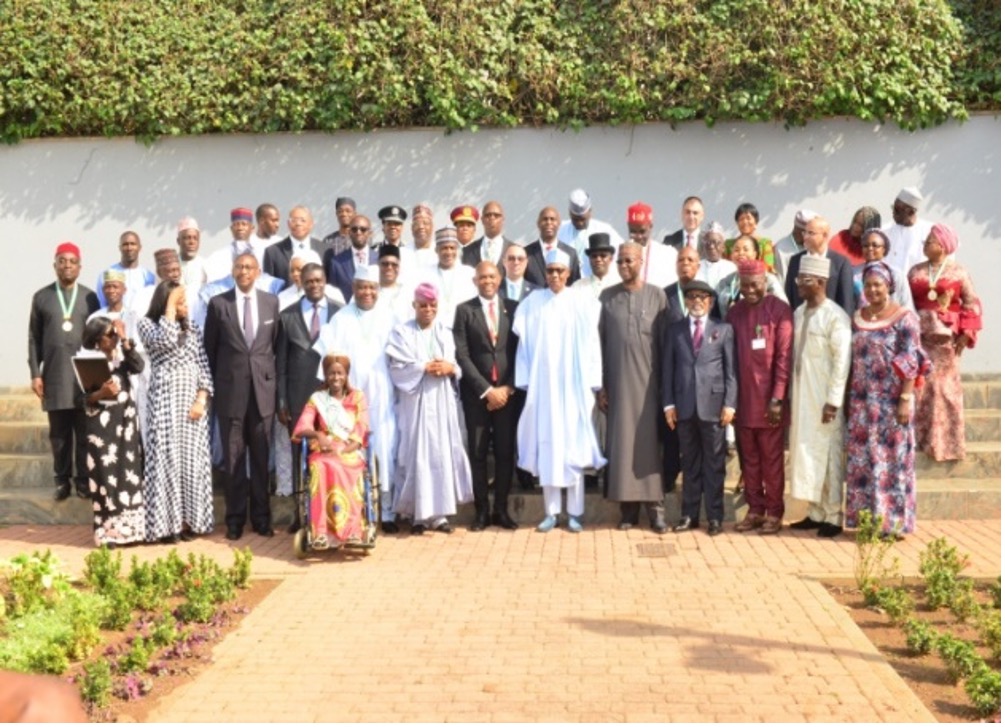National Productivity Day (NPD) Celebration And National Productivity Order Of Merit (NPOM) Award
CONCEPT NOTE /INTRODUCTION
At the Launching of Operation Excellence in Service (OPEX) in Lagos on 21st February, 1990, the Federal Government declared that the 21st of February of every year shall be observed in Nigeria as a National Productivity Day. Following this presidential directive, the first NPD was successfully observed on 21st February, 1991, at National and State levels across the federation.
Therefore, to underscore the importance of productivity and its improvement, and to bring the issue of productivity to the front burner of national discourse, the Federal Government set aside a day, each year, to be celebrated nationwide as National Productivity Day (NPD).
A major component of the National Productivity Day is the Conferment of the National Productivity Order of Merit (NPOM) Award on deserving individuals and corporate organizations in both the public and private sectors in Nigeria. This is an award of excellence, honour and dignity conferred by the President of Nigeria, on the most productive individuals and organizations operating in Nigeria, for their outstanding achievements and breakthroughs recorded in three preceding years, as well as their meaningful contributions to our developmental efforts.
Since the inception of the NPD in 1991, this yearly event has continued to achieve the following objectives, amongst others:
- To institutionalize productivity Consciousness and excellence in service among workers and organizations in both the public and private sectors in Nigeria; emphasizing on hardwork, high performance, efficiency, discipline, dedication, humility and patriotism.
- To accord workers and organizations proper and due recognition for hardwork, high productivity and research achievements.
- To identify, recognize and reward productive workers and organizations in both the public and private sector of the economy. Since inception, a total of 467 individuals and 119 organizations have been honoured with the NPOM Awards.
RATIONALE/RELEVANCE OF THE PROGRAMME
In instituting the National Productivity Order of Merit Award (NPOMA), government is fully aware of the social, political and economic implications of productivity. Essentially, productivity is the most important determinant of real economic growth, social progress and improved standard of living. In fact, changes in productivity are recognized as influencing many social and economic issues, such as rapid economic growth, higher standard of living, improvement in a nation's balance of payment and inflation control. These changes are functions of wage levels, cost/price relationships, capital investment needs and employment.
Consequently, the need to consolidate the achievements recorded by the various economic sectors makes the quest for higher productivity more urgent than ever before as higher productivity will help to alleviate any country's economic problems of inflation, adverse balance of trade, poor growth rate and unemployment. It also stimulates price stability, higher standard of living and capacity utilization. At both the individuals and corporate levels, the National Productivity Order of Merit Award a thoughtful incentive scheme designed to positively affect productivity.
At the individual level, negative and deviant behaviours like truancy, carelessness, tardiness, improper use of time, indolence, inefficiency, insubordination, dishonesty, bribery and corruption cannot give rise to productive and buoyant economy. Rather, great nations are built through the sweat of their citizenry who are committed to noble attributes such as expertise, job performance, dedication, hardwork, initiative, creativity, honesty, reliability, self-discipline, moral leadership, high sense of responsibility, punctuality, teamwork, contribution to the building of communities and organizations, and good human relations.
At the corporate level, the National Productivity Order of Merit Award seeks to acknowledge organizations that are self-reliant in their adaptation and application of technology in order to guarantee for themselves, cost effective operations and productive efficiency. Also, the award recognizes companies which show a trend for sustained increases over the years in such vital areas as local sourcing of raw materials, capacity utilization, sales turnover, profitability, employee welfare schemes and training facilities. An economy that generates good employment opportunities and respectable quality of life for its citizens is what is all about. Service organizations are also judged on their ability to render cost effective services which do not inflict pain on their consumers.
TARGET SECTORS/CLIENTS AND CUSTOMERS
Public and Private sectors
IMPLEMENTATION PROCESS/HOW IT WORKS
A 12-member high powered Award panel, is responsible for screening the submissions of nominees or their nominating bodies. The panel, also known as NPOMA Committee, as constituted by the Government, has the following mandate:
- a) To screen and select qualified organizations and individuals who have scaled through the stated criteria for the National Productivity Order of Merit Award (NPOMA);
- b) To comply with the prescribed National Productivity Order of Merit Award criteria without succumbing to any extraneous influence or subjective considerations;
- c)To protect the dignity and integrity of the National Productivity Order of Merit Award.
The present panel, whose membership cuts across diverse economic sectors, comprises highly distinguished Nigerians of proven integrity drawn from both the public and private sector organizations. The organizations include the Presidency, Federal Civil Service Commission, Nigeria Employers Consultative Association (NECA), Manufacturer's Association of Nigeria (MAN), Federal Ministry of Finance Nigerian Stock Exchange (NSE), Nigerian Labour Congress (NLC), Federal Ministry of Labour and Employment, some distinguished Nigerians in their own right, Director General of National Productivity Centre (NPC) and the Secretary who executes the day-to-day functions of the panel.
In executing its assignment, the Panel is very thorough and meticulous and follows religiously, the selection criteria for the NPOM Award as advertised. During its sittings, the Panel deliberates quite extensively as it screens the submissions received from Federal Ministries and Parastatals, States and Local Government, Private sector Organizations, NGOs, etc., and comes up with a recommended list of nominees for the Government. These nominees are further screened security wise before approval is given by the president, for their notification.
The assessment for individual nominees is based on 16-point performance criteria, while that of organization is based on 8-point criteria. For individuals, some of the attributes used include Job Performance, Expertise, Dedication, Creativity, Initiative, Responsibility, Leadership and Quality.Those for organizations include Local Sourcing of Raw Materials, Employment Generation, Staff Training. Profitability, Capacity Utilization, Corporate Social Responsibility, amongst others.
In order to authenticate the various claims and submissions, the Panel carries out independent assessments through enquiries to confirm the veracity or otherwise of the submissions.
The Panel is very fair, honest and objective in its work of recommending the recipients being presented for the conferment of the Award.
IMPACT OF THE PROGRAMME
- Ensured a high level of effectiveness and efficiency in the implementation of programmes and policies of various public services.
- Encouraged and fostered the spirit of healthy competition in the production and rendition of Services amongst workers, organizations and companies in Nigeria.
- Built and encouraged the spirit of self-reliance.
- The proper recognition and reward of productive workers and organizations hasfurther motivated otherworkers,in both the public and private sectors of the economy, to put in their best.
- As more companies and individuals come to be recognized and rewarded for higher productivity through the National Productivity Order of Merit Award, the foundation for productivity consciousness and improvement is also being laid in Nigeria.

